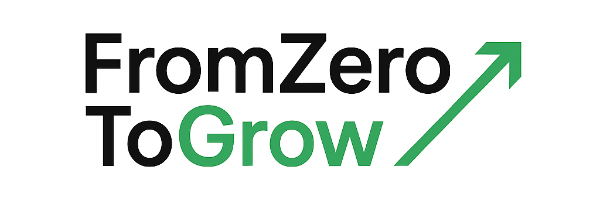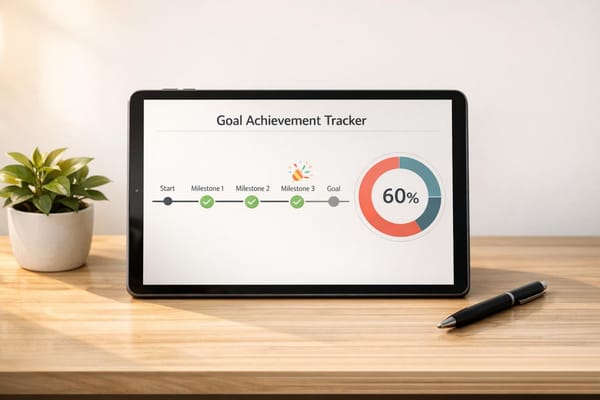How Immigrants Build Lasting Professional Networks
Immigrants can build strong professional networks in the U.S. by overcoming language barriers, leveraging community support, and mastering networking norms.

Building a professional network in the U.S. is critical for immigrants looking to grow their careers. Why? Because many jobs are filled through referrals and connections, not public postings. Immigrants often face unique challenges like language barriers, unfamiliar job markets, and unrecognized credentials. Networking helps overcome these hurdles by opening doors to mentorship, industry insights, and job opportunities.
Here’s a quick breakdown of what works:
- Learn U.S. networking norms: Practice small talk, maintain eye contact, and prepare a short pitch about your skills.
- Address communication challenges: Join ESL programs or workplace-focused language groups to improve confidence.
- Leverage professional organizations: Groups like Upwardly Global or industry-specific associations provide mentorship and access to hidden opportunities.
- Use digital tools: Platforms like LinkedIn help you connect, stay visible, and manage relationships.
- Maintain connections: Follow up regularly, engage on social media, and show genuine interest in others' success.
Networking tips for Newcomers and Immigrants
Overcoming Communication and Workplace Differences
Building professional connections in a new country can be daunting, especially when communication barriers come into play. Around 34% of immigrants in the United States report being criticized or insulted for speaking a language other than English. Additionally, 20% of U.S. employees who speak English with an accent feel judged because of it. These numbers highlight shared struggles many face in the workplace.
The financial toll of these barriers is hard to ignore. Skilled immigrants with limited English proficiency typically earn 25–40% less than their fluent colleagues. That wage gap makes improving communication skills essential - not just for networking but for career growth. For instance, in Washington, DC, where immigrants make up 14% of the population, over 14% report limited English proficiency. Despite these challenges, many professionals adapt successfully by learning the nuances of workplace communication in the U.S. Recognizing these hurdles is the first step toward mastering American networking customs and forming meaningful professional relationships.
Learning American Networking Practices
Networking in the United States often looks different from how it’s done elsewhere. For example, small talk isn’t just chit-chat - it’s an important way to build rapport. Conversations often start with topics like the weather, weekend plans, or recent news. If you’re used to diving straight into business, this informal approach might feel unfamiliar at first.
Knowing these unwritten rules can make a big difference. Americans generally value direct eye contact, firm handshakes, and a mix of casual and professional interaction. Punctuality is also key - arriving exactly on time is often seen as a sign of respect.
Another important aspect is the idea of "relationship before business." Unlike transactional networking styles common in some cultures, American networking emphasizes building genuine connections first. This might involve asking about someone’s background, interests, or current projects before discussing your own goals.
To navigate these settings effectively, prepare a concise 30–60 second pitch that highlights your strengths and invites further conversation. Understanding these norms not only helps you feel more comfortable but also sets the stage for stronger professional relationships.
Building Confidence in Cross-Border Interactions
Improving language skills takes practice, but it’s worth the effort. Consider joining targeted ESL programs or professional conversation groups . Many communities even offer free classes, some of which focus specifically on workplace communication.
Confidence grows through small, deliberate steps. Focus on active listening, set manageable networking goals, and rehearse responses to common questions. Shifting your attention toward understanding others rather than worrying about your own speaking can make conversations feel more natural. Simple gestures like maintaining eye contact, offering genuine smiles, and using open body language can also help you come across as approachable.
Your cultural background is a strength, not a hurdle. Your international perspective, multilingual skills, and cross-cultural insights are assets that can make you stand out in networking situations.
Workshops and certifications tailored to communication skills can provide structured opportunities to practice in a professional setting. Industry-specific training is especially useful for learning the terminology and communication styles relevant to your field.
Finally, don’t be afraid to make mistakes - they’re part of the learning process. Most Americans are understanding toward non-native speakers who are making an effort. Focus on being clear rather than perfect, and view each interaction as a chance to grow. With time and practice, you’ll find yourself navigating cross-border communication with greater ease and confidence.
Joining Professional Organizations and Community Groups
Once communication challenges are addressed, joining structured groups can be a powerful way to build lasting professional connections. Professional organizations and community groups play a crucial role in helping immigrants establish networks, whether through industry-specific associations or culturally supportive communities. These networks complement personal communication skills and create opportunities for meaningful professional relationships.
Leveraging Professional Associations and Industry Groups
Industry associations are invaluable for career growth, offering mentorship, education, and access to opportunities that might not be publicly available. For immigrants restarting their careers in the U.S., organizations like Upwardly Global are excellent resources. For example, in August 2021, Afghan professionals who relocated to the U.S. were projected to contribute approximately $650 million in annual earnings.
For those in legal professions or seeking immigration-related development, the American Immigration Lawyers Association (AILA) is an excellent resource for sharpening professional skills and advocating for fair immigration policies. Similarly, the Immigration Advocates Network (IAN) bridges professional development with advocacy, supporting immigrants and their allies.
Look for associations that offer workshops, certifications, and mentorship opportunities. These can help boost your credibility and expand your professional network.
Engaging with Immigrant-Focused Community Groups
Beyond industry-specific organizations, immigrant-focused community groups provide additional support tailored to unique challenges. Groups like United We Dream advocate for immigrant rights and dignity, while Global Refuge helps refugee families build new lives in the U.S.. Volunteering with such organizations not only strengthens your connections but also enriches your support network.
Research highlights the benefits of community participation, showing that it enhances well-being by providing resources and fostering a sense of belonging. Many of these groups offer legal, language, and cultural support, making them essential for navigating life in a new country.
To find relevant community groups, consider attending local events, festivals, and gatherings. Volunteering with local organizations can also help you form meaningful relationships. Connecting with established refugee and diaspora communities can lead to employment opportunities and expand your social network. Seeking mentors who have successfully integrated into the culture or joining forums for immigrant entrepreneurs can provide practical advice and valuable opportunities.
Additionally, professional service providers like accountants, lawyers, and business advisors who specialize in working with immigrants can be excellent networking resources. They often connect individuals to broader professional communities, further expanding your opportunities.
Maintaining Relationships for Long-Term Success
Building connections is just the beginning - keeping those relationships alive and thriving is the real key to lasting success.
The Importance of Give and Take in Networking
Reciprocity plays a central role in many networks, particularly among migrant communities, where there's an understanding that favors will eventually be returned. However, this expectation can sometimes make people hesitant to ask for help.
"Reciprocity – doing for others if they have done for you – is a key way people mobilize resources to deal with daily life and seize opportunities" - Plickert et al.
A great way to strengthen your network is by focusing on giving without expecting immediate returns. For instance, you could share job opportunities, introduce people who might benefit from knowing each other, or lend your expertise to a project. Even small gestures, like congratulating someone on a career milestone or sharing their work on social media, can leave a lasting impression.
Some individuals, particularly immigrants, may shy away from seeking help for fear of being obligated to return the favor. Instead, try to see your network as a long-term partnership where mutual support develops naturally over time. And when you do need assistance, don’t hesitate to ask - most people are more than willing to help. Consistently reaching out and staying engaged helps reinforce these reciprocal relationships.
Staying Connected Through Regular Contact
Once you've established a connection, maintaining it requires regular and thoughtful communication. A simple follow-up within a few days, referencing a specific detail from your last conversation, can go a long way in making you memorable. Setting reminders to check in every few months ensures you stay on their radar.
Providing updates on your career or congratulating others on their achievements are easy ways to keep the relationship active. Platforms like LinkedIn make this even simpler. By commenting on posts, sharing insights relevant to your industry, or keeping your profile updated, you remain visible to your network without needing constant direct communication.
For a more personal touch, consider scheduling occasional meetups - whether it’s grabbing coffee, attending events together, or even a quick virtual chat. These consistent, intentional interactions strengthen bonds and create a solid foundation for long-term professional growth.
Using Digital Platforms to Expand Your Network
Digital platforms have transformed the way immigrants can establish and grow professional connections. By breaking down geographical barriers, these tools open doors to opportunities that extend far beyond local communities. Platforms like LinkedIn, which now has over 990 million users worldwide - including around 214 million in the U.S. - are at the forefront of this shift.
Making the Most of LinkedIn and Other Networking Tools
LinkedIn stands out as the go-to platform for professional networking. To leave a strong first impression, make sure your profile is polished. Use a professional headshot, craft a concise headline, and write a summary that clearly conveys your skills and goals. Highlight your accomplishments with action-oriented language, and aim to gather endorsements and recommendations to build credibility.
When growing your network, focus on quality over quantity. Instead of chasing a high connection count, prioritize meaningful relationships. Personalize your connection requests with a short note that highlights shared interests or mutual connections - this small step can make a big difference.
"Simply being present isn't enough. Failing to interact with others' posts or responding to comments and messages makes your profile less impactful."
– Jason Mudd, managing partner and CEO at Axia Public Relations
Engagement is key to standing out. Interact thoughtfully by commenting on posts, sharing valuable content, and joining LinkedIn groups. Active participation in discussions and sharing insights can help you establish yourself as a knowledgeable and approachable professional.
When reaching out directly, keep your messages brief and personalized. LinkedIn InMail messages that are tailored and offer value tend to achieve response rates between 18-25%. For connection requests, aim to stay under 300 characters.
"LinkedIn is about creating relationships, not transactions. Approach each connection with curiosity, and your efforts to build real relationships will pay off."
– Nate Morgan, Author
Tracking and Organizing Contacts
As your network grows, managing all your connections can become challenging. Contact management tools are a great way to stay organized. These tools let you store and track your professional relationships in one place, often integrating with email, social media, and other networking platforms.
When choosing a tool, look for features like centralized storage, interaction tracking, and categorization. Additional perks like task reminders and mobile access can make managing your network even easier. Popular options such as Clay, Covve App, and Dex offer features like automated updates and streamlined organization.
Regularly auditing and categorizing your contacts ensures your information stays up-to-date and your connections remain useful. Automating follow-up reminders can also help you maintain relationships without missing key opportunities. In fact, studies show that effective use of CRM tools can boost sales productivity by 34%.
"CRM is a database with input and output. Based on the input and output, a CRM keeps on updating. The database here assumes the role of contact management."
– Jon Ferrara, CEO of Nimble
Conclusion: Key Steps for Building Strong Professional Networks
For immigrants navigating a new professional environment, building a strong network is more than just a career strategy - it's a necessity. Networking plays a pivotal role in career advancement, with 85% of jobs filled through connections and executives who network actively being 42% more likely to achieve their goals. For immigrants, these relationships can open doors to opportunities that might otherwise remain out of reach.
The key to successful networking lies in blending your cultural heritage with American workplace norms, creating a unique and authentic presence. Sharing your traditions and engaging in multicultural activities can make you stand out while fostering deeper connections. Research highlights that embracing cultural integration can offer distinct advantages in professional settings.
"Successfully adapting to American culture depends on striking a balance between cherishing your cultural roots and respecting the values and traditions of your new country."
Professional organizations and community groups provide excellent spaces to learn about American business etiquette while sharing your own perspective. However, the real value comes from active involvement, not just signing up. Participating in events, contributing to discussions, and volunteering your skills can help you build meaningful relationships.
Consistent communication is another cornerstone of effective networking. In fact, 61% of professionals say that regular online engagement strengthens their connections. Following up with new contacts, sharing helpful resources, and interacting with their content online are simple yet powerful ways to maintain relationships.
Digital platforms like LinkedIn offer immense potential, with 35% of professionals discovering opportunities through well-managed interactions on the platform. But it’s not about amassing a large number of connections; it’s about fostering quality interactions that build trust and credibility.
"Being authentic builds trust and credibility, which is the foundation of creating effective relationships." - Travis Leybeck, Senior Director of Student Engagement and Professional Services, Thunderbird School of Global Management at Arizona State University
Ultimately, successful networking for immigrants is rooted in mutual respect and genuine connections. By combining cultural authenticity with strategic digital engagement and consistent follow-through, you can create a network that not only supports your immediate career goals but also lays the foundation for long-term success. Your unique background isn’t a barrier - it’s an advantage when approached with confidence and cultural awareness.
FAQs
What are the best ways for immigrants to overcome language barriers when building professional networks in the U.S.?
Overcoming language barriers is crucial for building strong professional relationships in the U.S. A great starting point is to focus on improving English skills through classes, online tools, or local community programs. Regular practice is just as important - engage in conversations whenever possible, even if it feels intimidating at first. Aim to speak clearly and stick to straightforward, jargon-free language to make communication easier for everyone.
In professional environments, don’t shy away from asking for clarification if something isn’t clear. Most people appreciate the effort and are usually happy to assist. Translation apps and preparing a few key phrases ahead of time can also boost your confidence, especially during networking events or important meetings. Building language proficiency takes time, but with consistent practice, you’ll not only improve communication but also create stronger professional connections.
What are the best ways for immigrants to build and maintain lasting professional relationships?
Maintaining long-term professional relationships as an immigrant begins with earning trust. This involves consistent communication, truly listening to others, and showing sincere empathy. Taking the time to understand different perspectives and respecting cultural differences can go a long way in building stronger connections.
It’s also important to stay actively engaged with your network. Simple actions like checking in regularly, sharing updates, or offering support when it’s needed can make a big difference. Even small gestures, such as sending a quick message or remembering someone’s key milestones, can help foster deeper, more meaningful relationships.
Lastly, focus on creating value for both sides. Whether that means sharing your expertise, working together on projects, or simply being a dependable contact, contributing to others’ growth and success helps strengthen professional ties over time.
How can immigrants use LinkedIn to grow their professional networks effectively?
Immigrants can make the most of LinkedIn by creating a well-crafted profile that highlights their skills, accomplishments, and professional experience. A polished and complete profile not only boosts visibility but also establishes credibility within their industry.
To grow their network effectively, they can:
- Connect with purpose by reaching out to professionals in their industry or area of expertise.
- Interact with content by commenting on posts, sharing insightful articles, and joining discussions.
- Join industry groups to engage with peers who share similar professional interests.
Attending virtual events and webinars hosted on LinkedIn is another great way to meet industry experts and foster meaningful connections. Consistency and authentic interactions are essential for building a strong and lasting professional network.





